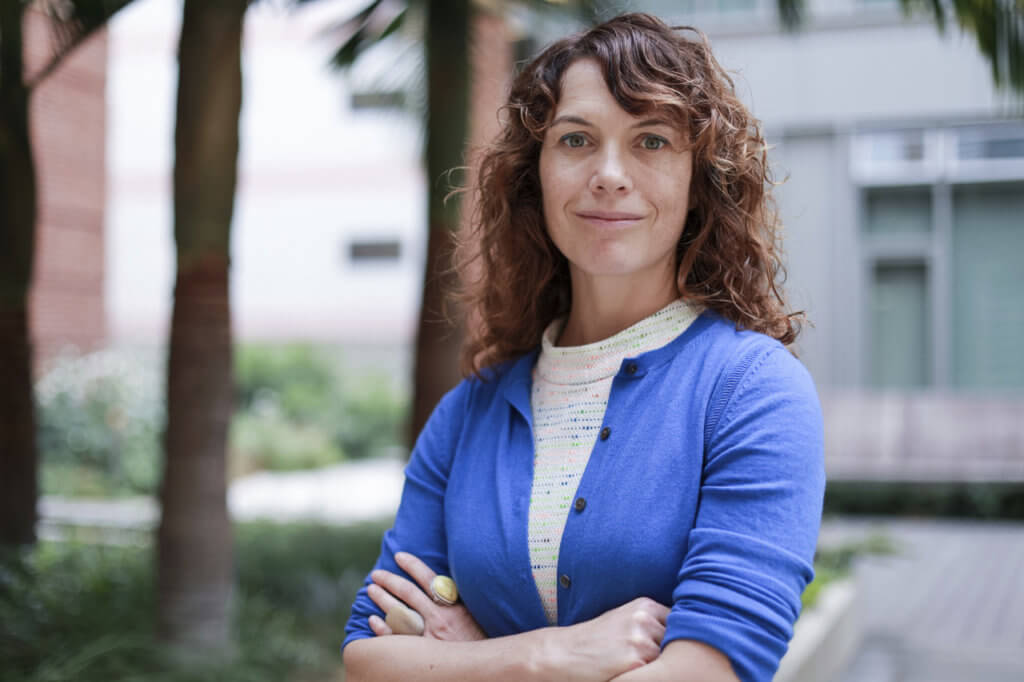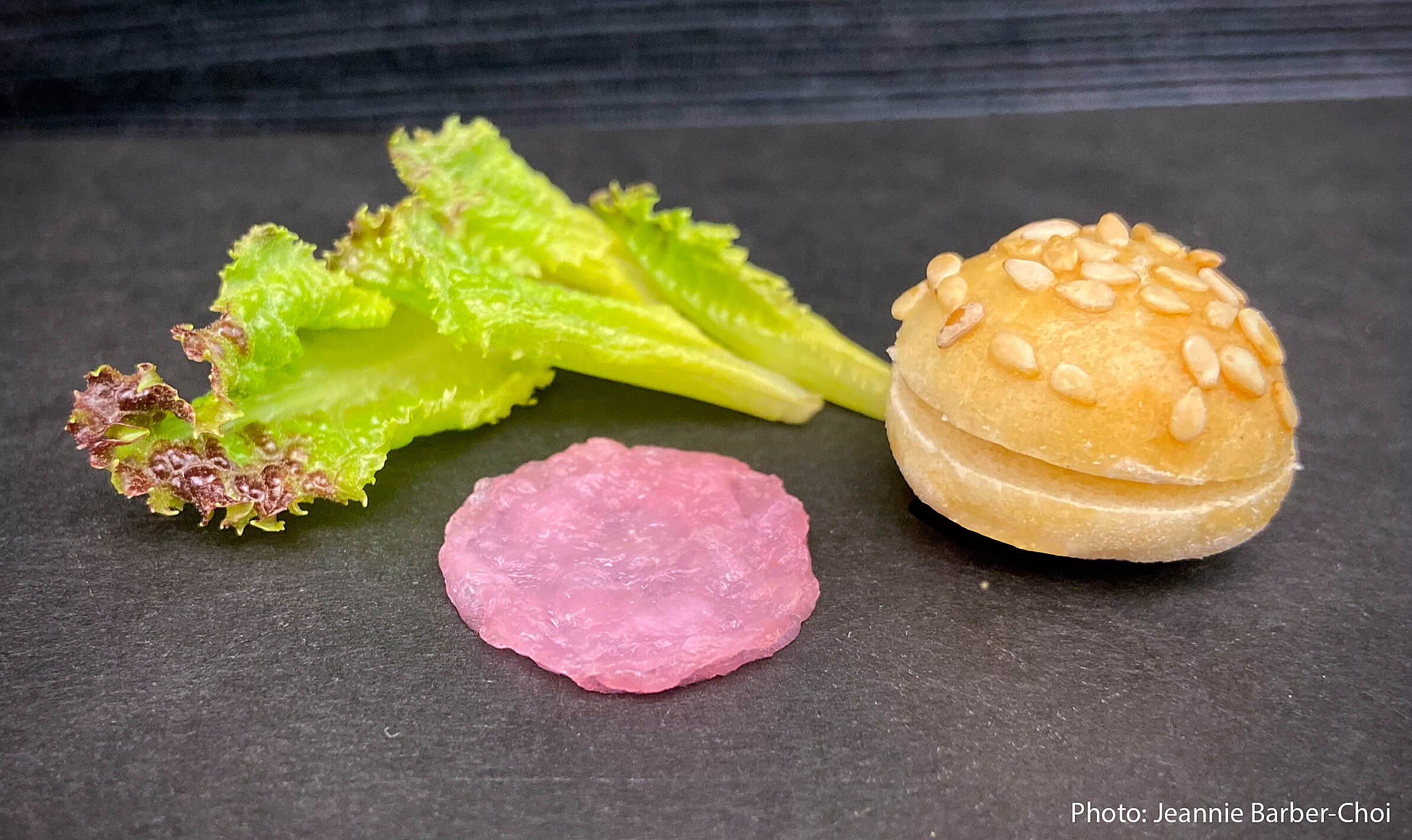An innovative project at the University of California (UCLA) is exploring how physical forces affect cells – a field called mechanical biology. Dr. Amy Rowat, founding director of Science and Food, a campus organization, is especially interested in how the forces may be important to developing cultured meat. Her ultimate goal is the development of laboratory-made steaks available in grocery stores for consumers.
Rowat views the scientific endeavor as an aspect of a greater research mission. “Very broadly, our work is driven by the desire to advance both human and planetary health,” Rowat says in a statement. “When I realized there was a gap in the field of alternative proteins, my skillset and the expertise of my lab in biophysics, engineering, cell biology and mechanical biology seemed like a strong fit.”
Rowat cites one of the many deleterious effects of the COVID-19 pandemic — that of disruptions to the supply chain adversely affecting the availability of household food staples — as an example of why expanding the types and availability of protein-rich foods would benefit society.
“Having other methods to produce animal-like protein can help increase the resilience of our food system,” she explains.

Cultured meat good for the planet
In addition to the increase in the availability of protein-rich foods, laboratory produced meats could solve problems and improve other pertinent issues. Cultured meat has the potential to cause less greenhouse gas emission, reduce antibiotic use, and use less land mass, pound-for-pound, than meat from livestock.
“I see cultured meat as a complement to other solutions, such as regenerative agriculture,” Rowat says. “An important aspect is simply to have these alternative protein sources out there.”
Cultured chicken nuggets are already available in Singapore. Similar products in the United States are working their way through regulatory processes, Rowat predicts that cultured meat may be available for sale in the U.S. in the next 18 months. It is unknown if it will have widespread adoption by consumers since plant-based meat alternatives have also become widely available. The plant-based protein sources are also finding a growing market among people living in extreme environments.
The costs and the challenges involved with producing laboratory-cultivated meat for consumption at consumer scale are substantial obstacles. Rowat’s research includes looking for methods that add efficiency to the manufacturing processes of cultured meat.
“The holy grail in this work is to develop a piece of meat that is more spatially patterned, like a filet mignon, and marbled with fat,” she adds. “Fat is really important for mouthfeel, for texture, for flavor and for nutrition. That’s the next frontier we’re working on now, and we’re grateful for the Noble Family Innovation Fund support. We’re excited for the next level of findings, which we think will make cultured meat more delicious and healthful.”
Rowat’s findings are published in the journal Biomaterials.

Artificial food for artificial people living in an artificial reality
What they don’t tell people about cultured “meat” is the medium it has to grow in. It’s fetal calf serum serum. This is made from the blood of unborn calves cut from their mothers at the time of slaughter.
NO FING WAY
Lab Meat is NOT good for you nor does it help the environment in a meaningful way.
https://www.3naturalBionutrition.com/replica-meat
Please stop no one wants this.
If it is made in a lab, it is NOT steak.
Keep it.
I’ll take the real thing, you can have the fake one – eventually it will turn out to be worse for you than actual meat.
Just like “low fat” dairy contributes to Parkinson, but full fat dairy doesn’t.
Just like seed oils contribute to cancer while butter, lard, etc. do not.
Just like artificial sweeteners contribute more to obesity and diabetes than plain old sugar.